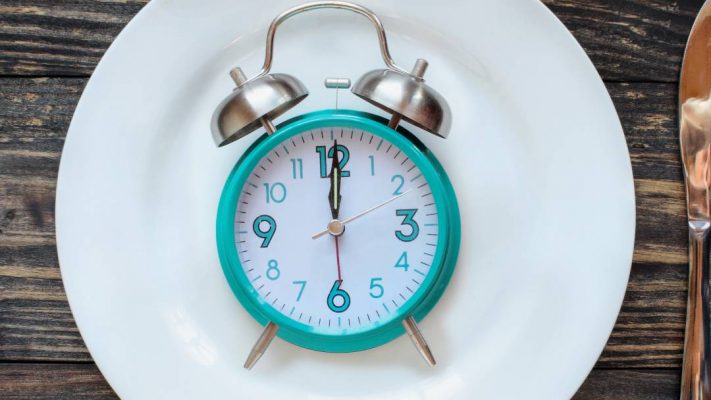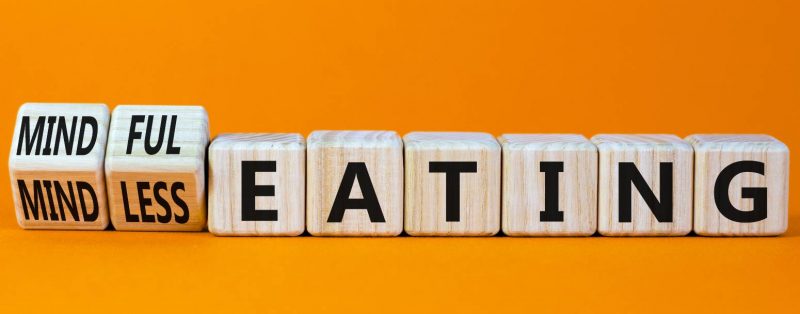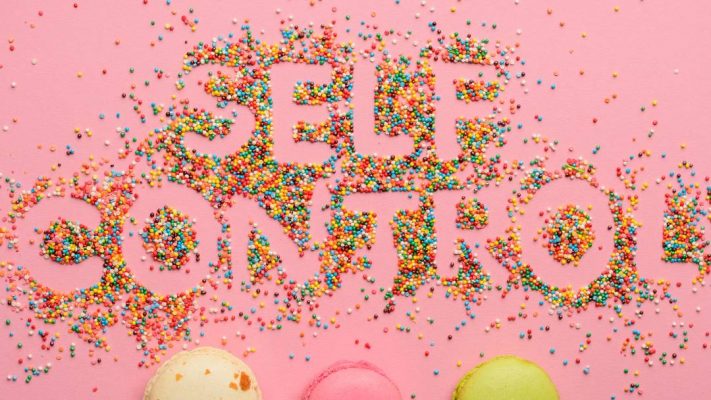Uncategorized
How to Stop Food Cravings
These are in no particular order, but perhaps one or several of them will resonate with you.
Oh, despite the “panic” it’s generally okay to eat in the evening. It isn’t necessarily bad and won’t necessarily increase your risk of gaining weight either but, as always, you have to decide what works for you. However, if you’re a struggling to lose weight and tend to over eat or snack later in the evening then a change in those habits could make a BIG difference.
The above said and as a rule of thumb, when I’m working with / coaching someone, I often recommend an evening fast from 7pm – 7am. This is usually realistic in terms of lifestyle, gives the digestion system a break, and prepares the body for a PEACEFUL and RESTFUL nights sleep.
Key point: In this blog, I’m not addressing those of you who train intensely (4-6 times per week) and will probably need a pre bed time to snack to aid recovery.
Okay, let’s do this!

Calories
You’re eating plenty of calories…but not enough nutrients! This can make you feel temporarily full (lots of calories). Problem! Despite the calorie intake you don’t reach satiety (nutrient quality of meal is low!) and your body needs nutrients to do all the jobs that require attention in the body.
For example, quality protein is needed to regenerate hair, skin and muscle, and essential fats are needed to produce and regulate your hormones. These are just two examples, but a diet low in essential fats is very common. A big bowl of pasta (carbohydrates) is lacking both!
Answer / Suggestion: Ensure your evening meal contains quality protein, healthy fats, vegetables and a carbohydrate like sweet potatoes. Wait 20-30 minutes after dinner and if you are still hungry try natural yoghurt, with berries as a dessert.
Under Eating During the Day / Skipping Lunch
This is actually very common when busy at work. You can often be in a slightly stressed state during your day so you are not ready to eat and hunger is suppressed. If you have also had 2-3 coffees (caffeine suppresses your appetite too) you may well have skipped or forgotten about lunch which can result in you being overly hungry when you get home. As your body begins to unwind from your stressful day hunger can then suddenly take over which can easily lead to over eating in the evening.
Answer / Suggestion: Keep your caffeine intake to 1 cup per day and take your lunch break to relax and enjoy a healthy lunch in a calm state – I know a novel idea to take your lunch break right!
Some slow release carbs, quality protein and healthy fats will keep you sustained during the second half of your day and, therefore, not overly hungry in the evening.
Avoid foods like a jacket potato at lunchtime as you will most likely have an energy dump mid afternoon!
Remember, your afternoon productivity will increase if you take that lunch break to recharge!

Boredom!
Are you just bored and not actually overly craving food?! Be honest, do you need another stimulation in the evening instead of watching television?
Answer/ Suggestion: DISTRACTION!!! Distraction techniques can be quite awesome in times like this – so is it time to reassess your evening routines?
Could this be the opportunity to add in some light exercise, yoga or Pilates to distract the mind? Set 2 week day evenings aside each as “my change time” to try something new and beat the boredom!
Mindless Eating Whilst Watching TV!
Mindless eating is often a habitual trait, one that can be deep rooted. However, lifestyle interventions geared towards combatting mindless eating can be re-taught and mastered.
Answer / Suggestion: If you’re going to have the television on start by having an have awareness of what you are eating. If it’s a night when you fancy some chocolate (for example) break a few squares in to small pieces and in to a small bowl.
Try adding something like chopped walnuts and blueberries to the bowl for a healthy, balanced bowl that should really beat the sweet addictive nature of the chocolate – and then practice that all important mindfulness eating by slowly enjoying the contents of your bowl!

Blood Sugar Imbalances
Blood sugar imbalances can be a common reason why you crave foods which put you on a hunger / full rollercoaster ride which can take some time to get under control. Being under chronic stress can really affect your blood sugar levels.
Answer / Suggestion: Your main meals should contain a good source of protein and healthy fats, these two macro nutrients really help with blood sugar balancing. Following the Mediterranean diet usually works really well here.
3 supplements to consider are: Chromium and Cinnamon and if stress is causing the blood sugar rollercoaster try supplementing with 200 – 400mg of Magnesium per day to bring your body back into a calmer state.
Gut Bacteria Symptoms
One of my favourite areas to tackle as gut bacteria seems to influence virtually every aspect of our health (not just obvious digestive issues). Let’s take hormones for example. Hormones govern EVERYTHING! How you act, how you think and how you feel.
Without hormones we wouldn’t be here as they are our communication tools passing information between cells, unfortunately the foods we eat can easily disrupt these communication pathways!
Your gut bacteria is constantly changing, usually dictated by the foods you eat which is why processed food can be a “disaster” for your gut bacteria. And yep, you’ve guessed it your gut bacteria produces a great deal of your hormones, aside from digestive hormones, mood influencing and sex hormones are produced in your gut.
A healthy body and mind needs a healthy gut.
Answer / Suggestions: To help nourish your gut bacteria the majority of the food you consume should be fresh and natural. Whenever you consume processed foods, for example a family pizza night, I always recommend a good strength probiotic (immediately after your meal) to counter the dose of processed food and to keep your healthy bacteria in charge!
Calories and Weight Loss
You are trying to lose weight and cutting too many calories. Classic problem!
It’s fine to “cut” calories for a little while, but being in a continued aggressive calorie deficit NEVER works. In a nutshell your metabolism drops to mirror your calorie intake and often your weight loss stalls and instead of dropping the fat you want you may start breaking down lean muscle AND potentially impacting your thyroid and adrenal function.
Calorie restrictive diets often result in people having to”fight” to ignore hunger and “power on” through! This is a battle you will always end up losing and it can easily lead to binging on carbs with feelings of failure.
KEY POINT! And this is crucial, you haven’t failed – you’ve just messed up the science!
Answer / Suggestion: Use aggressive calorie restriction strategically and for short periods of time ONLY, 7-21 days max. Any longer, and as mentioned above, your metabolism drops to match your calorie intake and then your weight usually plateaus.
Focus on the quality of your food and nourishing your body, not counting calories. Long term the Mediterranean style diet is usually great for health and weight loss. Starving the body can lead to unhealthy binge / starvation cycles.

Post Workout Meal
You haven’t re-fuelled properly after a workout!
Boom! You are hitting the gym and working hard but as weight loss is your goal you keep cutting those carbs!! Big mistake! See point above regarding calorie restriction but here we are focusing specifically on how your body fuels your workouts.
Intense workouts are mostly driven by glucose (simple sugar). Stored glucose is known as glycogen (it’s stored in the muscles and liver) and it’s this glycogen that is broken down to fuel intense workouts, which is why you reeeeaaallly want carbohydrate an hour or two after a hard workout.
Answer / Suggestion: Fuel your body by replenishing your carbohydrate stores after your workouts otherwise you will be constantly craving carbs a few hours after your workout and most likely end up binging to satisfy the craving!
Eating carbs will not affect your weight loss goals when training / exercise well, in fact you will be super fuelled and ready to work out again in about 48 hours if you “carb up” post your workout!
Consume carbs before your workouts too to fuel your session.
How Fast Should I Eat?
Are you eating too quickly! I generally categorise this in to three mindsets!
Crocodile: You bite off chunks, hardly chew and just swallow!
Excited dog: You take lots of small bites, chew quite a lot but eat very quickly!
Chilled out monkey: You eat in a calm state, small bites with lots of chewing!
Answer / Suggestion: We all know it takes about 20 minutes for our brain to register satiety, so eat slowly, allow digestive enzymes to break down your food properly, and allow your hunger hormones leptin and ghrelin to register those feelings of satiety.
In a nutshell, eat like a chilled out monkey not an excitable dog!
Poor Sleep

Such a huge area to discuss and we can’t do it justice here in a few short paragraphs. However, if it’s what I class as “sleep hygiene” issues such as going to bed late, waking up at different times, coffee / alcohol / sugary foods to close to bed time, noise, disruptive partner / children etc then they are things that can, reasonably, easy be changed.
Of course, conditions such insomnia for example are more difficult but here I would start looking at your stress levels and production of Cortisol – known as your stress hormone.
3 Simple Immediate Answers / Suggestions:
Number 1 is a general approach so, of course, needs to be adapted for your needs.
1: Set bed and awakening times – this usually helps “set” your body’s natural sleep and awakening cycles. Now, in evolutionary terms humans probably napped during the day when needed as sleeping in nature probably meant our night sleep was regularly disrupted. But given the modern world it makes sense to try and keep to rhythms, particularly as the body likes things in balance.
2: Expose yourself to natural day light immediately on rising for around 15 minutes if you can. Your body doesn’t know “modern clock time” it knows light and dark! Exposure to early morning sunlight is therefore a great way to set your circadian rhythm. During those dark winter months use daylight alarms and red light therapy lighting.
3: Avoid alcohol and caffeine in the afternoon and evening! Alcohol is a classic problem for sleep as it disrupts all stages of sleep. You can often fall asleep quite quickly after alcohol but as you disrupt all other aspects of your sleep you feel unrefreshed upon waking – even if you only had a glass or two AND had plenty of total of hours of sleep!
Caffeine has a half life of around 4-5 hours which accumulates with every cuppa! Therefore, if you’re serious about a goods night sleep caffeine after 12pm is a no, no!
Totally Avoiding Your Favourite Treats!
This just isn’t fun for anyone so taking the approach of “I’m never going to eat that again” is pointless!
In fact, the more you deprive yourself of your favourite “treats” (if we can use that word) the more it’s likely you will crave it until it builds to such a level that over eating or binging is the most likely outcome.
Answer / Suggestion: Don’t view food as a treat or reward, view it as something you can enjoy from time to time with no feelings of guilt or justification.
Conclusion
Do you have genuine cravings or is it boredom and mindless eating?
If it’s boredom and or mindless eating then lifestyle changes and distraction techniques will be your area to focus on.
If the cravings are more than that and you continually feel hungry or craving sugar or salty foods then look at your gut health, particularly re-balancing your gut bacteria, and also work on your reducing your stress levels.


